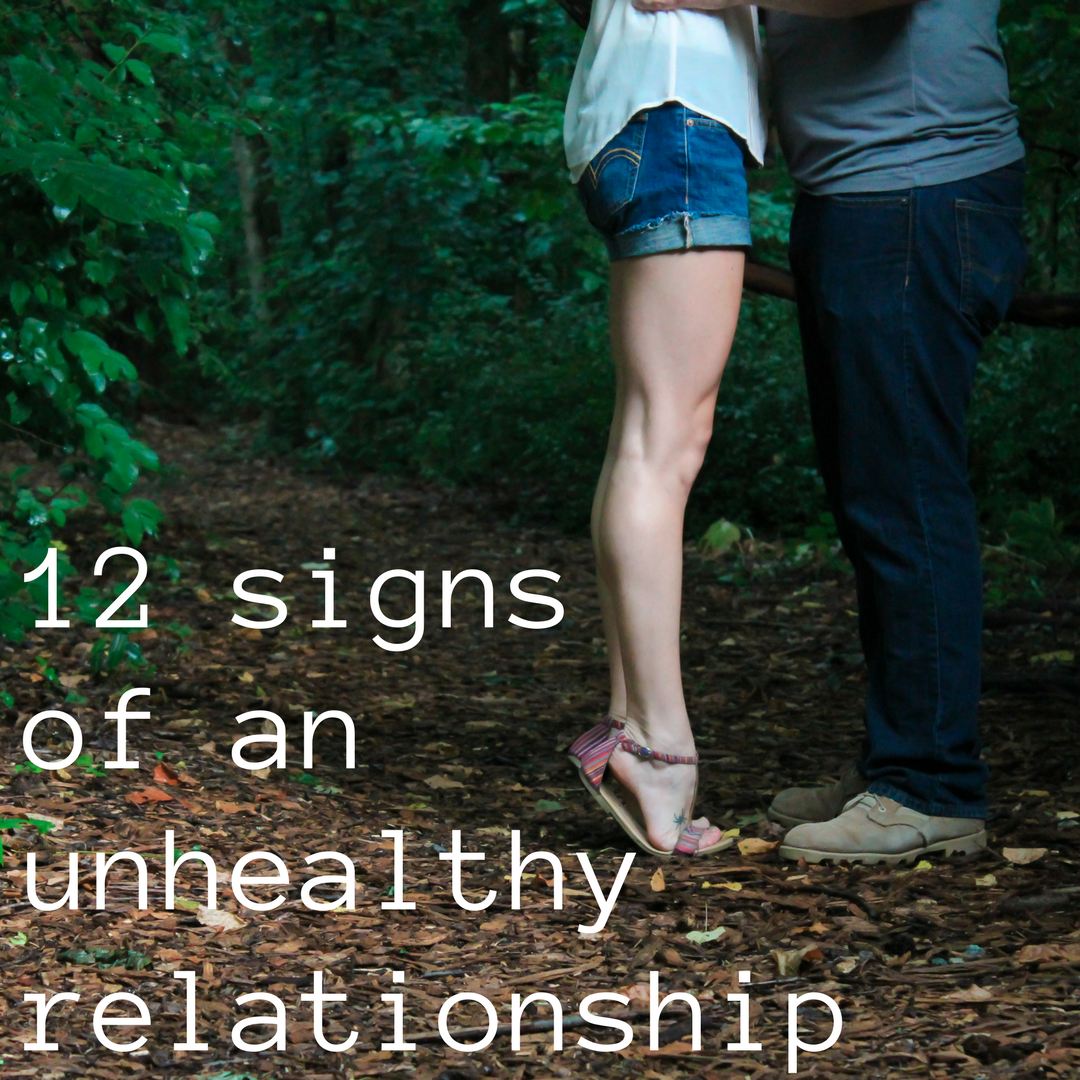One hallmark about humans is that we are social beings. Even introverts, who prefer to be alone, need to have relationships with other people. In many ways, we are stronger when we are together; however, some relationships may do just the opposite. Some people struggle with friendships, others struggle with family members, but one of the most common relationship struggles that we see in our office involve intimate partners. This list was made in hopes to bring to light possible unhealthy habits that may take place in your relationships, whether it be with a partner, sibling, or friend.
1. Controlling a person's appearance
Telling someone how to dress or look is basically hijacking a person’s identity. A person's style expresses their individuality and highlights the characteristics in which they take pride. It is not appropriate for someone to always tell another how to dress, what makeup to wear, or how they should style his/her hair. A friendly suggestion is one thing, but assuming control of another's style sheds light on a potential unhealthy relationship.
2. Criticizing & Name Calling
According to the legendary couple’s therapist, John Gottman, criticizing is one of the four horsemen in unhealthy relationships. It never feels good when someone criticizes another's honest effort. Know how to spot the difference between constructive feedback versus criticism- constructive feedback is given with the intention to genuinely help someone become a better version of themselves, while criticisms are simply given to tear down another's confidence. Here's an example of constructive feedback: "Wow honey, thank you for making chicken pot pie for us. If you don't mind, I think it needs a little more spices to enhance the flavor." And here's an example of criticism: "Blech. This pot pie is so bland. Remind me to sign you up for cooking lessons." Spot the difference? The first one offers a gentle suggestion amidst praise and thanksgiving, while the second is starkly punitive and belittling. It is important to seek counseling with your partner if criticism is something that you experience a lot in your relationship. The same goes for name calling- there is a difference between affectionate names and derogatory names. In order to understand if the name is friendly or not, both parties should feel good when saying/hearing the name.
3. Isolation from Family and Friends
This is one of the hallmarks of intimate partner violence, and another method of control. When a person is actively trying to keep you away from family or friends, it should be a big red flag. Once other relationships decreased it is not uncommon for the partner to begin instilling other forms of harm, now that the other is isolated.
4. Blaming & Shaming
This is a common manipulation tactic. It is hard for some people to take responsibility for their actions, and so they blame another to help lessen the blow to their ego. One of the most frustrating parts of fighting can be when a person not only denies responsibility, but then misplaces the blame on you. Making people feel guilt or shame about something may be a power play in order to continue to hold power over someone else. It is easier to have control over someone who feels shame about themselves than it is to have control over someone who is proud and empowered.
5. Physically harms
This is an obvious sign of being in an unhealthy relationship. There is no reason for another person to put their hands or anything else on you, unless it is your wish. A person can be angry without physically harming another. THERE IS NO REASON FOR A PERSON TO HARM ANOTHER.
6. Ignoring & Witholding Affection
Withholding affection and ignoring another is conditional love, meaning, “I only love you when you do x, y, or z for me.” Healthy relationships are unconditional, meaning no matter what you do or say, they will love you regardless. Withholding affection or ignoring is a passive way of manipulating another person. Often what happens is the person who is being ignored will drive themselves crazy trying to please the other.
7. Mistrust
A healthy relationship is built on the foundation of trust. If a person is going through another’s phone calls, text messages, emails or other form invasion of privacy, it is because they do not trust them. If you do not trust your partner, or they do not trust you, there is a reason. Counseling can help!
8. Makes all the Decisions
From choosing where to go for lunch, to deciding where money goes, a partnership is healthy when both parties are equal in their decisions. Some people struggle with making decisions themselves and so it can be even more challenging adding another person into the equation. This is when compromising comes into play.
9. Pressures the other
It is healthy for us to venture out and try new things, but we are the experts of ourselves. We know that if we are not comfortable trying something new or doing something we know we do not like. A person in a healthy relationship respects the boundaries of the partner. This is especially true for intimacy related boundaries. A person should never feel pressured to try or do anything they are uncomfortable doing. Sure, we should all be challenged to expand our comfort zones from time to time, but we should never be pressured or forced to compromise our values or personal desires.
10. Cheats or Threatens to Cheat
Each couple has their own definition of what cheating is. For instance, couples who are in an open relationship may have a different idea on what cheating is than another couple who is in a closed relationship. If your partner cheats on your or threatens to cheat on you, they are likely not respecting the bonds of the relationship and are misusing your trust.
11. Inappropriately Overreacts to a Situation
We all have times when we overreact to a situation, but there should be a red flag if your partner overreacts to nearly every situation. If you feel as though you are walking on egg shells around your partner in order to not upset them, it is likely because your partner gets set off by the slightest trigger. This ongoing stress to appease the other is tiresome and unfair.
12. Smashes, Throws or Breaks Things
Sometimes when people get very angry they might throw or smash something in order to relieve themselves of that anger. It is okay for a person to feel angry, but it is important to express anger in a healthy and safe way. It is not okay for someone to throw things at another or break things that do not belong to them. There are appropriate and healthy ways for a person to release their aggression physically, such as through general exercise, boxing, or playing sports.
As humans, relationships are vital for our wellbeing. We crave a sense of acceptance, understanding, and love. If you are in a relationship with several signs that are listed above, please understand that there is much room for improvement. Relationships with others are important, and you are worthy of being treated with respect and love. Contact us today to help learn how to deepen your relationship and create healthy boundaries.

